Journal Boards
Owner on behalf of the Selcuk University, Faculty of Letters
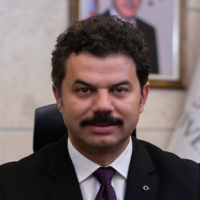
Editor

Editör Yardımcısı

Section Editor
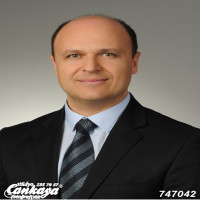
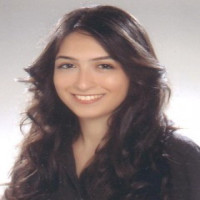


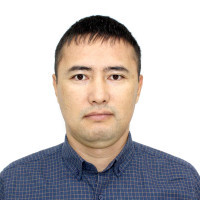
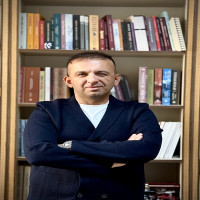
Assoc. Prof. Dr. Ünsal Yılmaz YEŞİLDAL was born in 1980 in Bartın. Having completed his primary and secondary education in Zonguldak, Yeşildal completed his bachelor's degree at Selçuk University, Faculty of Education, Department of Turkish Language and Literature Teaching (1998-2003), his master's degree at Selçuk University, Institute of Social Sciences, Department of Turkish Folk Literature (2004-2007), and his doctorate at Gazi University, Institute of Social Sciences, Department of Turkish Folk Literature (2010-2015). The author, who worked as a teacher and school administrator in schools affiliated with the Ministry of National Education between 2003-2011, worked as a Turkish Language Instructor at Gazi University between 2011-2015, and was appointed as a faculty member at Akdeniz University, Faculty of Letters, Department of Turkish Language and Literature in 2015. Yeşildal, who received the title of Associate Professor in Turkish Folklore in 2020, has published numerous articles, primarily in journals indexed by the Web of Science (WOS). In addition to two independently published books, Yeşildal has also contributed to numerous books as an author. His work primarily focuses on Turkish folk literature, Turkish folklore, and Turkish mythology, and he is particularly notable for his work on animal symbolism.

Hatice Ekici graduated from Boğaziçi University with degrees in Psychology and Political Science and International Relations in 2011. She completed her master’s studies in the Conflict Analysis and Resolution program at Sabancı University with a full scholarship. Hatice Ekici earned her PhD in social psychology from Istanbul University and has published various academic works in prestigious national and international journals.
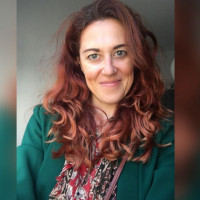
 Web
Web
Elena Paola Carola Alessiato is Associated Professor for History of Philosophy at the University Suor Orsola Benincasa of Naples (Italy).
She has carried out training, research, and teaching experiences in various cultural institutions and universities in Germany, Italy, Canada, and France. As a scholar of German political culture of the 19th and 20th centuries, she has published in various languages on Fichte and German Idealism, Jaspers and existential philosophy, and Thomas Mann and the First World War.
Among her most recent research projects there are works on the philosophy of happiness and the digital society.
Her classical education is complemented by interdisciplinary projects on the methodology of knowledge, digital natives, ethical competencies in education, and the relationship between artificial intelligence, philosophy, and didactics.
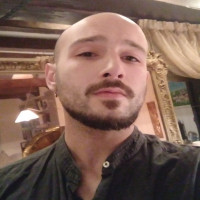
Jorge Arroita is currently a PhD Candidate in Literary Theory and Comparative Literature at the University of Salamanca. He is also President of the academic journal Cuadernos de Aleph, and member of the cluster COPOS – Cognition in Comparative Poetics, at the University of Salamanca. In his thesis, he conducts research on intertextuality, focused on the creation of a literary theory named as ‘diatextuality’, from which he tries to analyze, break down and categorize the different ways in which textual elements may be transformed from one text to another; likewise, fostering an interdisciplinary approach between literature, science, and philosophy, according to which the aim is to stress the importance of diachronic relationships, processes and transformations as a way of overcoming temporal, spatial, and linguistic boundaries. He has published his works in academic journals such as Cuadernos de Aleph, Compendium: Journal of Comparative Studies, Impossibilia, 452ºF, Tropelías, Anales de Literatura Española, LEJANA. Revista Crítica de Narrativa Breve, or Selçuk Journal of the University of Letters, as well as in several monographs on literary theory, comparative literature, and Spanish or Spanish-American Literature.
He has worked as Visiting Assistant Professor at the University of Coimbra (Secção de Estudos Espanhóis), and has done a research stay at the University of Aveiro (2024). Besides, he is part of the Organizing Committee of the 1st, 2nd, and 3th International Conference on Lyric Theory and Comparative Poetics, co-director of the XXII International Conference ALEPH, ‘Tras las huellas del silencio en las literaturas y culturas hispánicas’ (Université de Strasbourg, 2026), co-editor, along with Víctor Bermúdez, María Elena Higueruelo, and Friederike Foedtke, of the volume Dimensiones teóricas de la lírica (2026), and Field editor for the journal Selçuk University Journal of Faculty of Letters.

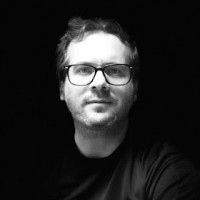
I'm Louie Giray, an assistant professor in the Department of Liberal Arts, School of Foundational Studies and Education at Mapúa University, Philippines. I serve as a board member at the Research Center for Global and International Education at Khazar University in Azerbaijan. Recently, I've been inducted as a research fellow at Shinawatra University, Thailand. Armed with a master's degree in communication and a bachelor's in secondary education, I teach courses related to communication and the arts. I've published in several international journals. But truth be told, my heart belongs to personal essays. Unlike the rigid, colonized format of Western academic writing, essays let me breathe. They allow me to see the connection between myself and the written word; it's both reflective and therapeutic. I've been immersed in the world of higher education for nearly a decade now, constantly navigating the uneasy space between passion and pressure, integrity and survival.


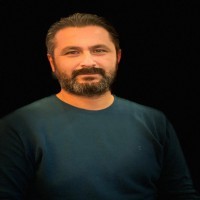
Technical Editors
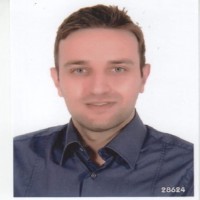





Yabancı Dil Editörleri
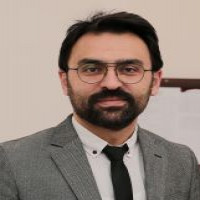
Lisans derecesini Cumhuriyet Üniversitesi İngiliz Dili ve Edebiyatı bölümünden, Yüksek Lisans ve Doktora derecelerini Atılım Üniversitesi İngiliz Kültürü ve Edebiyatı alanında burslu olarak tamamladı. Shakespeare, Sanayi Romanları, Felsefe ve Edebiyat, Edebiyat Kuramları üzerine çalışmaları bulunmaktadır. Aksaray Üniversitesi İngiliz Dili ve Edebiyatı bölümünde, Necmettin Erbakan Üniversitesi Yabanci Diller Yüksekokulu'nda çalıştıktan sonra Selçuk Üniversitesi İngiliz Dili ve Edebiyatı bölümünde çalışmaya devam etmektedir.
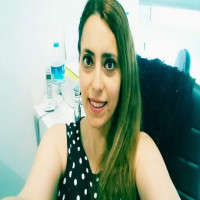
Nazan YILDIZ ÇİÇEKÇİ 2004 yılında Karadeniz Teknik Üniversitesi, İngiliz Dili ve Edebiyatı bölümünden mezun oldu. 2005 yılında aynı bölümde araştırma görevlisi olarak çalışmaya başladı. 2007 yılında aynı üniversitede Uygulamalı Dilbilimi alanında yüksek lisansını “Karadeniz Teknik Üniversitesi, İngiliz Dili ve Edebiyatı Anabilim Dalı Edebiyat Derslerindeki Eleştirel Düşünce Ortamını Edebiyat Tabanlı Eleştirel Düşünce Programıyla Geliştirmek üzerine Deneysel Bir Çalışma” adlı teziyle tamamladı. 2008 yılında Hacettepe Üniversitesi, İngiliz Dili ve Edebiyatı bölümünde doktora öğrencisi oldu ve aynı bölümde araştırma görevlisi olarak çalışmaya başladı. 2015 yılında “Geoffrey Chaucer’ın Canterbury Hikayeleri’nde Melezleşme ve Sınıflar Arasındaki Sınırların Yeniden Çizilmesi” adlı teziyle doktora derecesini aldı. Oregon Üniversitesi, Amerikan İngiliz Enstitüsünden eleştirel düşünce becerileri üzerine sertifika sahibidir. Ulusal ve uluslararası yayın ve bildirileri bulunmaktadır. Orta Çağ İngiliz Edebiyatı, Orta Çağ Tarihi, Chaucer, Eski İngiliz Edebiyatı, İngiliz Romanı, Kadın Çalışmaları, Toplumsal Cinsiyet, Karşılaştırmalı Edebiyat, Sömürgecilik ve Sömürgecilik sonrası Dönemi İngiliz Edebiyatı, ve Eleştirel Düşünce ve Edebiyat başlıca çalışma alanlarıdır. Karadeniz Teknik Üniversitesi, İngiliz Dili ve Edebiyatı Bölümü’nde doçent olarak görev yapmaktadır.

 Web
Web

Türkçe Dil Editörleri
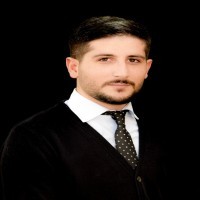

Secretary
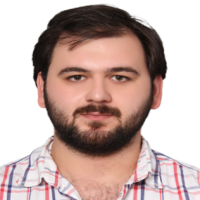
Selcuk University Journal of Faculty of Letters will start accepting articles for 2025 issues on Dergipark as of September 15, 2024.


